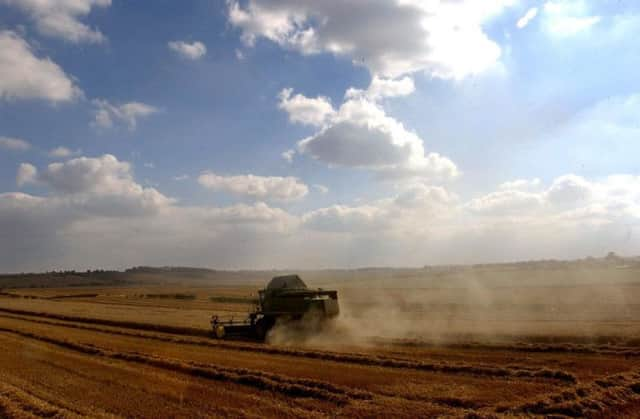SAC Consulting seeks new chief as Cowens steps down


The SRUC said Jonathan Cowens would step down from his post as SAC Consulting director in August, after four-and-a-half years at the helm of this division of the college, which currently employs 375 consultants, vets, technicians and support staff.
Although there is no new appointee to the job, it is understood the college is in the process of putting out a tender for a recruitment company to “head hunt” for the post of managing director of SAC Consulting – and that an appointment will be made shortly.
Advertisement
Hide AdAdvertisement
Hide AdThis second change at the top follows the sudden exit of principal and chief executive Professor Bob Webb last November after 19 months in the job.
A successor to Webb has not yet been appointed and industry sources believe no appointment is likely to be made until the college’s ongoing negotiations on the “closer relationship” with Edinburgh University are concluded.
A spokesman stressed that Cowens’ move was an amicable one and that he had been in agreement with the current course of reorganisation being taken by the college. He said Cowens had led the consultancy division during a period of significant change and had been instrumental in recent work to set up a new board dedicated to SAC Consulting’s operation.
It was stated that while SAC Consulting and its staff would continue to operate as normal, the creation of a board dedicated to the division’s operation placed it in the “strongest possible position to capitalise on the many opportunities facing the business”.
“These include the impact of common agricultural policy reform; the Scottish Government reviews of advisory services and veterinary disease surveillance; the continued commitment to regional service delivery and wider growth; and SRUC’s strategic alignment with the University of Edinburgh.”
The new board, which comes into immediate effect, will take up a number of the roles formerly fulfilled by the college’s commercial board, which will now be left to oversee SRUC’s other commercial activities such as research and SRUC’s farms.
It will be chaired by current SRUC vice-chair Pat Machray OBE. The other members, who also presently sit on either the SRUC or SAC commercial boards, are Luke Borwick, John Gilliland OBE, David Green OBE, Stewart Houston CBE, Alistair Marshall (vice-chair), Wilson Marshall, Kate Richards, SRUC acting chief executive Janet Swadling and the new, yet-to-be-appointed, managing director of SAC Consulting.
On behalf of SRUC, Swadling commented: “Jonathan has led the consulting division for the last four-and-a-half years during a period of significant change.
Advertisement
Hide AdAdvertisement
Hide Ad“He leaves SAC Consulting well-placed as it moves into a new era to benefit from a wide range of emerging opportunities and enhanced services.
“On behalf of SRUC, I would like to express my sincere appreciation for his application and significant contribution throughout his time with us.
“We wish Jonathan well for the future.”
Call for greater state lead on UK food security
The Crop Protection Association yesterday welcomed the recommendations of a parliamentary report that called for more leadership from government in responding to the UK food security challenge in coming years.
Responding to the publication of the House of Commons environment, food and rural affairs select committee report on food security, CPA chief executive Nick von Westenholz, said: “The committee is right to recognise the role of technology in driving greater food security. The government must ensure its agri-tech strategy is appropriately funded and focused to ensure innovation makes it out into the field where it can be taken up by farmers and growers.
“However, it’s not just about ensuring the R&D pipeline is properly funded and structured – it must be accompanied by a regulatory system that doesn’t stifle innovation by preventing farmers from having access to the tools they need.”
He added that the UK government should challenge the current approach being taken by European regulators and policymakers on issues such as pesticides and genetically modified organisms, which demonstrated an “over-emphasis” on precaution that failed to recognise the vital role these technologies would play in feeding the world.
“While the UK government appears to recognise the distinctive challenge for UK food producers in meeting demand from a growing global population, there seems to be a complete lack or recognition among European policymakers about the need to support a sustainable increase in productivity.”